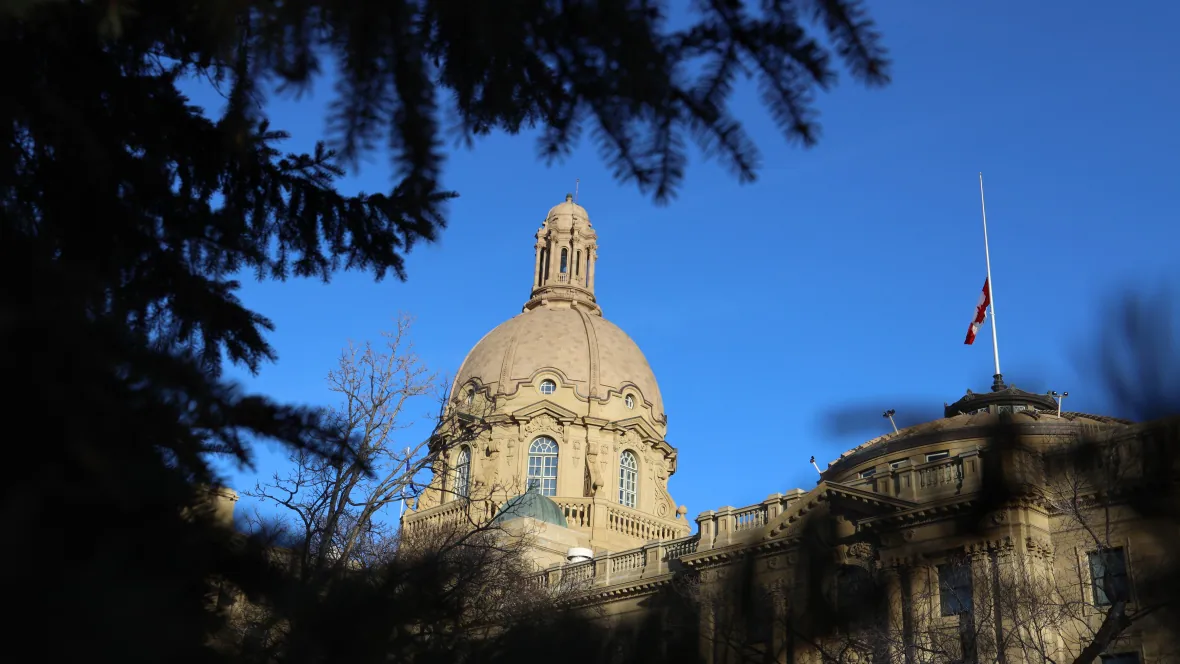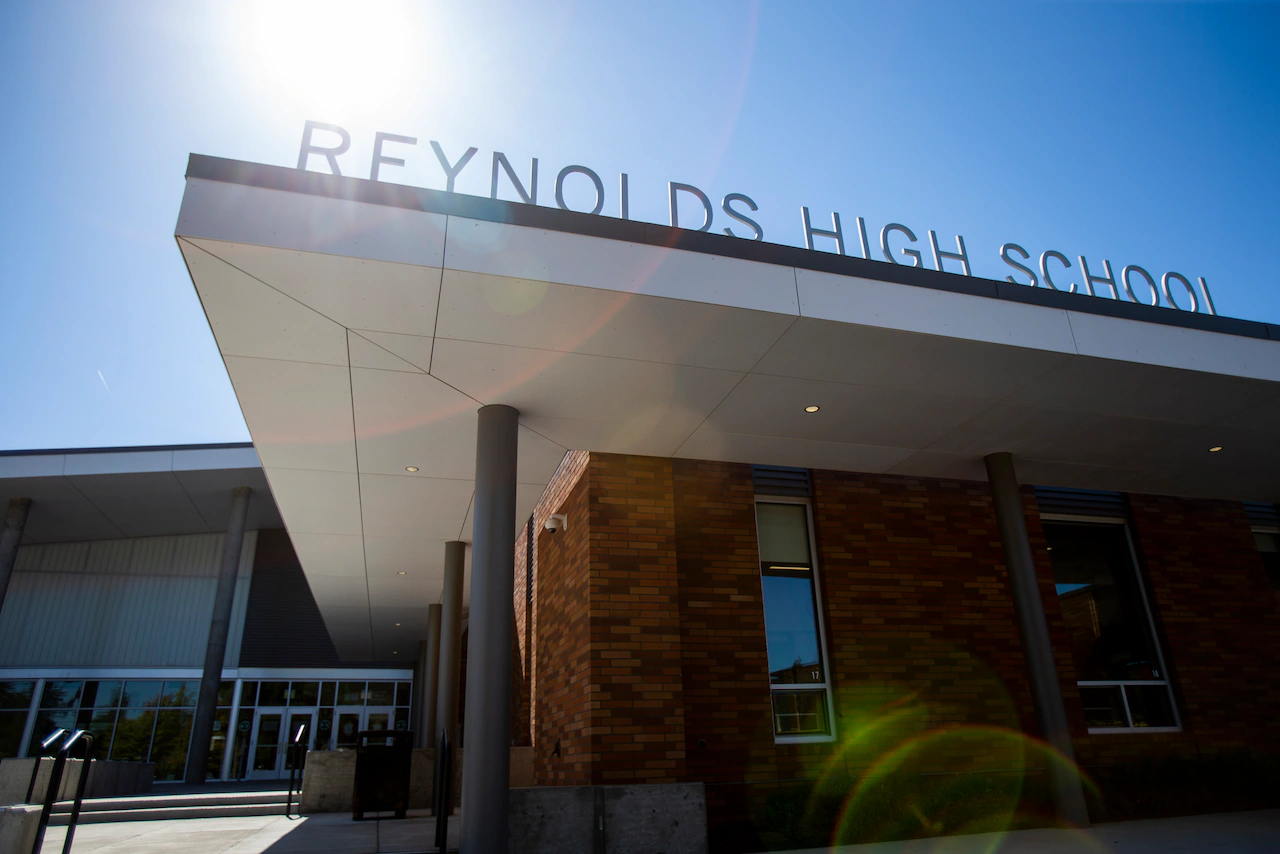Minister dismisses concerns over discrimination as Alberta’s citizenship marker on IDs draws skepticism
By Andrew Jeffrey
Copyright cbc

The Alberta government’s plan to add Canadian citizenship markers to provincial driver’s licences has been met with skepticism by some legal and immigration experts, who worry the measure is a “disproportionate” solution that the province might have a hard time justifying.
Meanwhile, the minister in charge of the change, Dale Nally, said Tuesday that “because we live in Canada, there will be no discrimination.”
On Monday, Premier Danielle Smith said driver’s licences and ID cards with citizenship markers will begin rolling out late next year. Alberta is the first province to make the markers mandatory.
The province’s goal, Smith said, is to streamline access to provincial services that require both proof of identity and citizenship, by combining those requirements into one document.
She added the measure is also meant to protect against election fraud, and that licences will also include health-care information to cut down on the number of Alberta health cards, which the province has found exceeds the number of people living in Alberta by more than 530,000.
“It’s a three-part solution that we’re looking at, and if there are other ways we would apply it, I guess we’ll have to see on a future going-forward basis,” said Smith on Monday.
‘Disproportionate’ response
Some experts are worried about unintended consequences of the markers.
Tamir Israel, director of the Canadian Civil Liberties Association’s privacy, surveillance and technology program, said the announcement is a major concern for his organization, and he’s unsure what the impetus is driving the decision.
“You really shouldn’t need to disclose the fact that you’re not a Canadian citizen whenever you get ID-ed at a restaurant or are in a traffic stop or when you’re providing ID to rent an Airbnb or in an apartment rental application,” said Israel.
He is concerned people who don’t have a citizenship marker on their ID could be more open to facing discrimination, whether it’s through an outright denial of service or more subtle treatment like profiling.
“The number of situations in particular where you could be required to provide your ID are very wide, and in the majority of these situations, there’s no need to have any proof of citizenship,” said Israel.
“It seems disproportionate.”
The core driver of the policy is to streamline applications for provincial services, argued Service Alberta and Red Tape Reduction Minister Dale Nally on CBC Radio’s Alberta at Noon on Tuesday.
Nally argued that because IDs won’t specifically state someone’s citizenship status if they’re a non-citizen — by saying permanent resident, refugee or international student, for instance — this will cut down on the potential for discrimination.
“This is a process that we’re putting in place that’s going to make it simpler to Albertans when trying to apply for benefits,” he said.
When asked on Tuesday how the province would safeguard against discrimination, Nally’s press secretary Brandon Aboultaif noted citizenship is included on government-issued ID in dozens of countries, and Alberta is aligning with international standards by providing one card to confirm identity and citizenship.
Potential for charter challenge
But if challenged over discrimination, University of Calgary law professor Jennifer Koshan said the province will need to show pressing and substantial reasons why the policy was needed.
The Canadian Charter of Rights and Freedoms includes a guarantee against discrimination from government actions. The Supreme Court has held in the past that non-citizenship is potential grounds for discrimination under this section, said Koshan, setting a precedent that could be relevant for Alberta’s new policy.
Governments are open to argue new laws are justifiable in placing reasonable limits on charter-protected rights and freedoms, she added.
“They have to have evidence that there’s some sort of problem that they’re trying to fix,” said Koshan.
“Unless they can bring forward that sort of evidence, that the failure to be able to distinguish between citizens and non-citizens is causing some sort of harm in society, they’re probably not going to be able to justify this type of citizenship marker.”
She added that a non-citizen could challenge the policy if they show they’re being disadvantaged or experiencing negative effects from the markers.
This doesn’t seem to be intended to address any actual fraud that’s going on.- Daniel Bernhard, Institute for Canadian Citizenship
Koshan noted the province could point to the practice existing in other countries if challenged in court, but that this justification might not be enough on its own.
“Efficiency alone, even if they could prove that, is probably not going to be enough of an argument to justify this law,” said Koshan.
Daniel Bernhard, CEO of the Institute for Canadian Citizenship, argued it’s unclear what problem the citizenship markers are meant to solve, with little evidence of voter fraud in Alberta.
“This doesn’t seem to be intended to address any actual fraud that’s going on,” said Bernhard.
“It seems to be an intention, rather, to simply just create a mark of distinction that’s visible to people in authority about who is and who is not a citizen in contexts that actually have nothing to do with whether or not you’re a citizen.”
Elections Alberta confirmed on Tuesday that since 2015, only four letters of reprimand have been issued in the province to voters who were found to be ineligible after casting a vote.
Rather than worrying about non-citizens voting, Bernhard argued low voter turnout is a larger issue, and the province should be more concerned with encouraging people who are eligible to vote, to cast a ballot.
“If they’re looking to increase the integrity and the veracity and legitimacy of elections, I’d say trying to find ways to get more Canadian citizens to actually use their right to vote might be a better way to direct their efforts,” said Bernhard.



